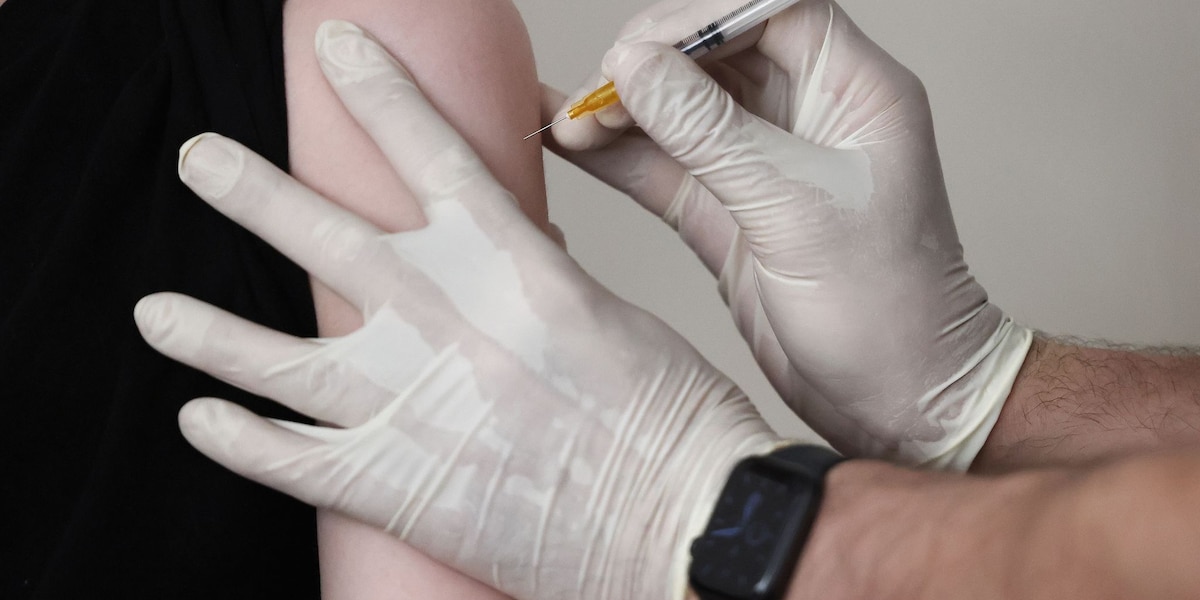Corona restrictions largely removed: Vaccine King Portugal suddenly raises a concern: “We are vaccinating more people”
Earlier in the year, the corona epidemic in Portugal completely lost control. Due to the heavy load of hospitals, even the German Armed Forces had to assist at the site. But in the meantime the country has largely returned to normal life due to high vaccination rates.
More than 65 percent of the total population in Germany is now vaccinated – in other words, to end the epidemic and control the infection rate in the long run. Very few remove current restrictions such as mask requirement.
But despite the rising numbers again and the cancellation of many measures like 3G and 2G and free trials from October 11, the vaccine turbo in this country is still a long way off.
Independence Day in Portugal – Restrictions largely removed
All that remains is a look of envy on Portugal, which has completely vaccinated 98 percent of its population in 12 years. On October 1, the country completed its “Esato de Allerto” (alarm level) and lifted several restrictions. Restaurants and hotels and small shops can be re-entered without a mask – and even discos and clubs are reopening.
In fact, the lowest number of new infections in Portugal is about 600 a day. The condition of the hospitals there has also been relaxed. In Germany, on the other hand, the number of new infections currently averages more than 8,000 7-day. There has also been an increase in intensive care cases since August — there are currently more than 1,344 Covid-19 patients in the intensive care unit.
The option to get vaccinated is common in Portugal – citizens are constantly asked
But without the need for any vaccine – how has Portugal slipped into other European countries in the last few months?
One reason for this is that the vaccine generally plays an important role in the community in Portugal. This was stated in an interview by Manuel Ivon da Cunha, a sociologist at Minho University in northern Portugal.The world“There, people are closely reminded of the pending vaccines for children, something that does not exist in Germany.
A valid vaccination certificate must be issued when registering at schools, applying for a driver’s license, or applying for a job in the public service. The sociologist explained that Portugal has an environment that facilitates vaccinations and provides strong incentives. Vaccine suspicion and vaccination denial camp is much smaller than in other European countries. “Acceptance of vaccines is very high here,” says Da Cunha.
The naval commander was appointed head of the vaccine
In addition, Portugal carried out a kind of “military vaccination campaign” against Corona. Henrik Cueva, a former naval commander and logistics specialist, served as head of the e Melo operation. “I made it clear to the people that we are at war with the virus and that we must unite to win against it and protect our children from it,” he told the world.
Each citizen was individually invited to be vaccinated at least three times. If that person does not respond, they will be contacted and reminded again and again.
In this way, the Portuguese succeeded in reducing the already small immunization agents. “I quietly said in front of the cameras that the killer virus, these people are helping him,” “Weld” quotes Couvia e Melo.
The former vaccine leader resigned at the end of September because the 85 percent vaccination target already achieved at the time was critical of the third vaccine: “We are vaccinating people again and a large part of the world has not yet received the vaccine. It is a mistake for moral, ethical and strategic reasons.” Opinion shared by many experts in Germany.
The Germans fear the negative effects of the vaccine
The real reasons why many people in Germany do not get vaccinated were recently brought to light by a cosmo study (Govt-snapshot-tracking) that involved, among other things, the enlightenment involving Herbert University, the Robert Koch Institute and the Federal Health Center:
- Seventy-five percent of those questioned said they would consider the vaccine unnecessary if many had been vaccinated.
- Seventy-two percent said the benefit-risk assessment was not in favor of the vaccine.
- On the other hand, 40 percent expressed concern about the safety of the vaccine: their main arguments include insufficient research, very quick approval and possible unknown long-term effects.
The study concluded that the safety and benefit of the vaccine are the most relevant factors for vaccination termination. “With all of these factors, some socio-demographic factors recur, indicating a lack of confidence, a lower risk sense and a lower preference for vaccination due to free riding,” the study says.
That’s the price of the world’s most expensive groceries
cs

